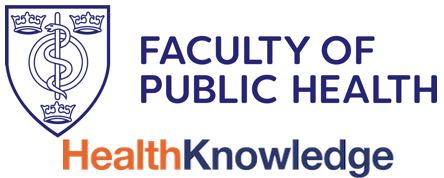|
Genetic testing usually involves testing an individual for the genetic change (mutation) underlying a condition or abnormality that may be suggested by other evidence. Genetic screening may involve testing members of a population (or sub-population) for a defect or condition, usually where there is no prior evidence of its presence in individuals or their relatives, and as part of a public health service. Alternatively, the offer of screening may be limited to a sub-population that is at particular risk of a genetic condition. |
Adapted from: The Nuffield Council (2006)
Genetic screening is distinct from screening for other conditions in that it has the potential impact not just on the individuals being screened, but also their family members and society generally. This raises a number of ethical issues:
Consent to being screened
- Patients need to be sufficiently informed about the implications of genetic screening before they can provide informed consent.
- The public view genetics with a sense of inevitability. However, a genetic condition alone may be insufficient to cause disease, but may modify risks from environmental or lifestyle factors.
- The voluntary nature of the screening process must be emphasised.
Counselling
- To reduce potential psychological distress, counselling should be available to provide information about genetic risk and explain choices regarding genetic testing and further management.
- Support is needed for individuals who must consider issues such as stigma, disclosure to family members, and confidentiality (outlined below).
- Couples known to carry a recessive or dominant single gene defect or sex-linked condition need counselling about their reproductive options. This may include prenatal diagnosis and possible pregnancy termination in the case of an affected fetus, and preimplantation genetic diagnosis (PGD). In vitro fertilisation (IVF) in combination with PGD may provide such high-risk couples with a pregnancy with no chance of genetic disorder transmission.
The risk of stigma
- The public's understanding of genetics may be limited and can lead to stigma.
- Misunderstanding of the genetic risk of developing diseases can increase stigmatisation. This may be around life expectancy, lifestyle choices, or decisions about having children.
- Identification of a genetic condition before birth raises issues of whether the parents wish to terminate the pregnancy. Some commentators have argued that the ability to only select 'perfect' babies is a form of eugenics.
Confidentiality
- Like other medical information, results from genetic testing are considered confidential. Under normal practice, the doctor patient relationship protects against disclosure of genetic information.
- However, there is less clarity in cases where relatives wish to know the results of a family member's genetic test, as it may have direct relevance for them (see below).
- Another particular dilemma is the case of a pregnant woman wanting to know the result of a test taken by the baby's father.
- In the UK, the Human Genetics Committee, General Medical Council and the Department of Health endorse disclosure only when the benefits substantially outweigh the patient's claims to confidentiality.
- The storage of genetic screening data and registries of patients creates particular concern, given that the results may impact negatively on family members.
Disclosure to family members
- Doctors face a dilemma when reporting the results of genetic screening. Standard medical practice is based on the principles that doctors should focus on their patients and that medical information should remain confidential.
- It is unclear if doctors are ethically permitted to inform relatives in cases when the result of a genetic test indicates real risk to their health.
- Doctors may also be faced with a decision about whether to persuade patients about the need to disclose their test result to relatives.
- Although most professional bodies believe that disclosure should not be against patients' consent, there have been some cases where the rights of relatives have won priority.
Possible use of genetic information by insurers or employers
- The primary concern among the public is the use of genetic information to deny access to health insurance or medical treatment.
- Several cases of misuse of genetic screening results have occurred that led to reduced access to medical care.
- Conversely, health insurers claim the right to access such data where it exists to avoid the 'moral hazard' of patients with known conditions taking out an insurance policy without disclosing this information.
- There are also concerns that employers may use genetic screening results to discriminate against workers. However, many employers already require medical examinations before employment, and may wish to use genetic tests to identify individuals who may be at particular risk of occupational diseases.
Reference materials
- Our inheritance, our future Realising the potential of genetics in the NHS Progress Review (2008) Department of Health. Focuses on strengthening genetic services throughout the NHS.
- Profiling the newborn: a prospective gene technology (2005).The Human Genetics Commission (HGC) and UK National Screening Committee. Conclusion - genetic profiling of newborns was unlikely to be a practical or acceptable practice for the foreseeable future.
- Genetics White Paper - Our inheritance, our future - realising the potential of genetics in the NHS 2003. (2003) Department of Health
- Clayton EW. Ethical, Legal, and Social Implications of Genomic Medicine. New England Journal of Medicine. 2003;349:562-9.
© Dr Murad Ruf and Dr Oliver Morgan 2008, Dr Kelly Mackenzie 2017
